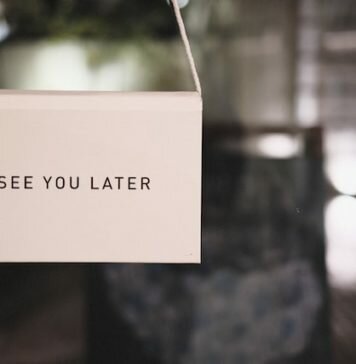May 5, 2021, is National Silence the Shame Day, a day that aims to end the stigma surrounding mental health. The hope is by having conversations and bringing awareness about mental health and wellness with those people around you, that there is less stigma attached to saying, out loud, that you suffer from some form of mental illness.
This is a tough thing to do. All around us, every day, people say, “That’s crazy! That’s insane! Are you nuts? She’s out of her mind! He’s a nutcase!” There’s so much casual bias against people with depression, bipolar, schizophrenia, anxiety, and so on that we don’t even notice it — unless you happen to be living with mental illness.
I live with post-traumatic stress disorder, a condition that I lived with undiagnosed for 20 years. After my first sexual assault in college, I didn’t question why I was so afraid, startled so easily, had racing thoughts, hyper-vigilance, and nightmares. I thought I was “high strung.” My ex-husband had no patience for my fears and anxiety and often responded by saying, “Just have a drink. Have a glass of wine! Get over it!” Needless to say, taking a drink every time I had anxiety would not have been healthy.
There’s so much casual bias against people with depression, bipolar, schizophrenia, anxiety, that we don’t even notice — unless you happen to be living with mental illness.
I had other symptoms: Shaking hands. Slightly elevated blood pressure. Digestive issues. And I had mystery rashes that appeared out of “nowhere,” that is, when I got into a stressful situation and broke into hives. It looked like I had poison oak. I self-soothed with skin lotions, petting my cat, hiding under the blankets. My shaking hands got me into trouble with a doctor, who thought I had the beginnings of Parkinson’s or other disease, and wanted to put me on an anti-tremor medication. I refused, believing my shakes were stress-related. She wrote in my chart that I was refusing treatment, and soon after, I was denied coverage and my insurance canceled me as a patient.
I finally had enough of my weird, itchy, terrified life and went to therapy (again), a new-to-me therapist who dug into the root of things. He recommended anti-anxiety meds and diagnosed my PTSD. He wrote me a year of disability from my work as a journalist and editor, giving me time to learn how to rest, to read my own signals, and to cope with the backlog of traumas that I had accumulated since the first assault. I had, in fact, been assaulted twice more in that time, and had left a marriage with an emotionally abusive man. All of that helped (and I remarried, a compassionate man who walks a similar path with me). My skin rarely breaks out into hives. I don’t have tremors. I sleep fairly well. And I will take my anti-anxiety meds until the day I die because it helps cut out the incessant yammering of “You suck, you stupid idiot, look at your life, you’re a failure…” on repeat that was driving me to the edge.
I finally accepted that the result of emotional abuse on top of violent sexual trauma will always have an affect on me, and that I am strong enough now to say no to such abuse. I am strong enough to seek help for my traumas. I own my mental health — and I live with anxiety and PTSD daily. It makes me more compassionate to those suffering without meds or therapy, and it has helped me through the other traumas in our lives, as when our son took his own life in 2019. If I had not worked on my mental health before that, I don’t know how we could have come through such devastation intact as a couple and a family.
I have spent too much of my life feeling ashamed, from sexual assaults, a failed marriage, difficulties in raising children and step-children. I will not be ashamed of my mental health any longer. It is time to end the stigma. No more shame.
***
From National Silence the Shame Day (Evolve Family Services):
We can all work to end the stigma that is associated with mental health. Mental illness is something that can be diagnosed at any stage during the illness. It can have a variety of different symptoms and it may or may not impact our daily functioning. Every mental illness can affect someone differently. It is important to remember that mental illness can be treatable, and recovery is possible. It is also important to remember that you are not alone during this process.
About one in every five individuals in the United States struggle daily with their mental health. According to the U.S Center for Disease Control and Prevention (CDC), suicide is the 10th leading cause of death in the United States; for individuals between the ages of 10 and 34, it is the second leading cause of death. It is okay to need help, and it is okay to talk to those around you. No one should struggle with mental illness alone. The stigma about discussing mental health needs to end so that no one feels they need to be silent about their mental illness.
- Use the hashtag #silencetheshame
- Talk with your doctor
- Talk with a therapist
- Find a support group
- Know that you are not alone
- Call the National Alliance on Mental Health (NAMI) Helpline at
, or text “NAMI” to 741741.
Photo by Finn on Unsplash













